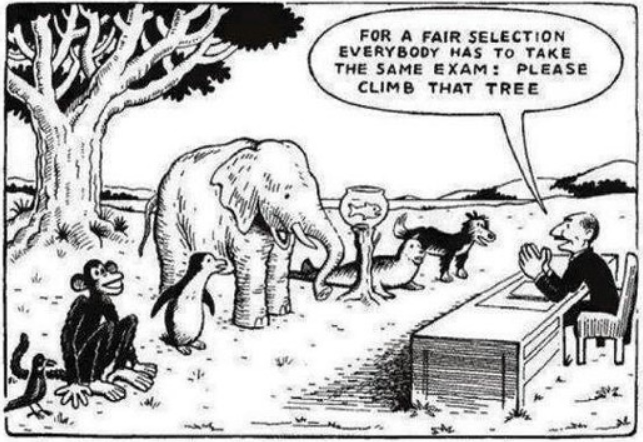
Following this year’s changes to assessments, should Cambridge abolish exams for good?
We spoke to current students about the trials and tribulations of alternative assessments
Whilst UCL have cancelled assessments for freshers and asked them to complete a “reflective essay” on “something you have learned” this year – no, I’m not joking – Oxbridge exceptionalism means that we are still completing some form of assessment in the coming months. Academic and examination excellence has always been the bedrock of the Cambridge prestige; a notoriously high-pressure environment has defined all of our lives since the end of our three day (rip) Freshers’ Week.
Nevertheless, given the current coronavirus crisis, the University has had to re-evaluate its entire vision of rigour to fit into a catastrophic global context. So, should Cambridge follow from its current example, embrace its inner Year 8 PSHE teacher, and abolish standardised examinations forever?

Is it me, or did every British state school have this up somewhere? [Credit: Sonia Tellez Flickr, Creative Commons License]

Admittedly, the Cava’ing will be missed. Credit: Harrison Jennings
Coursework-based assessment is a much easier transition for us studying a BA in Unemployable Studies (shout out to my fellow historians) – but how do STEMers feel? James, a Robinson Mathmo, is against coursework-based assessment, rallying in support of traditional closed-book exams as the only practical way “to truly assess ability without leaving the door open for cheating”.
Whilst not initially being the spiciest of takes, he does go on to explain that plagiarism in mathematics cannot be detected as it can in essay subjects, leaving it open to frequent Google-abuse. Paar, fellow Robinson Mathmo, points out that the current CATAM maths coursework – optional and constituting a minimum amount of the overall grade is far better in “imitating academic mathematical research” than traditional maths exams.
Lucas, Trinity PhysNatSci, puts the Education department out of a job with an actual solution to an actual issue: taking out the sections on bookwork in Natural Sciences exams so that “only the problem aspect remains”, replacing bookwork in coursework modules. This would help address Louise, Robinson ChemEng’s concern about Cambridge exams just being “retention of information” that dissipates post-exam, whilst coursework can allow for long-term processing to supplement exam problem-solving.
Meanwhile, second-year Trinity student Adam took a more pantomime villain approach to the question, claiming that “while some simps can motivate themselves to do coursework, kings require an exam to structure their life”. Building upon this intellectual assertion, he points out that May Week wouldn’t have the same “vibe” if it didn’t succeed a period of extensive trauma.
Banter aside, the current situation has made the University take collective issues – i.e. not having adequate facilities for working at home – seriously, for the first time in recent history. Thinking about the future of examinations in Cambridge should extend beyond format and into extenuating circumstances on an individual basis.
An anonymous English finalist experienced a bout of severe illness in Easter term of 2019, and despite requesting assistance from the University, was asked to still sit exams. “I recovered from COVID-19 just over a week ago, and last year I was far more ill than this. Worse, and I still had to sit exams”. When asked what could be changed in the future, they said: “More compassion, more transparency” – which does sound pretty good, and pretty needed.

You’re just going to have to deal with the Android emojis, luv. (Photo credit: State Library of Queensland, Australia, Wikipedia, Creative Commons)
Former education student, Arran, thinks that although exams are inherently flawed, the current UK education system values them too much to dispose of yet. “Aims should be focussed on reforming and liberalising, not abolition; we just aren’t ready for that overhaul yet”. He goes on to outline how untimed, open-note exams could be a possibility for future humanities exams: “We can adapt to open-book now, and that has meant that people’s whole-year progress and critical thinking is assessed, not just retention”.
Whatever our thoughts, Cambridge likely aren’t putting exams in the bin permanently any time soon. But maybe, if we get really lucky, we can bully them into being a bit nicer to us in the future.









































